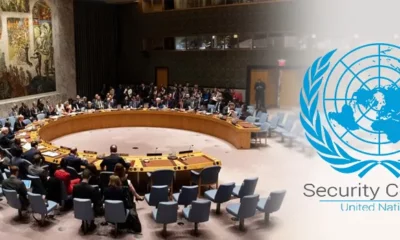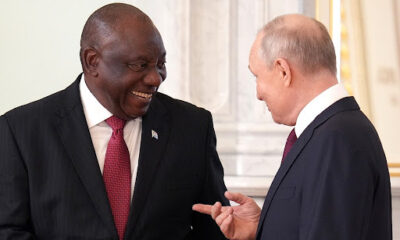Russia has taken its clampdown on the traditional media to the social media, after a court on Monday, placed a ban on Facebook and Instagram, claiming that the two platforms are “extremist.”
The ban on the new media platforms are part of sweeping efforts by Moscow to crack down on social media during the conflict in Ukraine.
Before the ban, the Russian authorities had accused the U.S. tech giant, Meta, the parent company of Facebook, Instagram and WhatsApp, of tolerating what it termed as “Russophobia” since President Vladimir Putin ordered his troops to invade Ukraine on February 24.
The Moscow’s Tverskoi District Court acceded to a request from prosecutors for the two social media platforms to be banned for “carrying out extremist activities” just as the two platforms have been inaccessible in Russia since early March and Instagram was blocked in the country.
In the judgement, the court ruled that Meta’s WhatsApp messenger service would not be prohibited because it is not used to post public statements.
During Monday’s court hearing, Russia’s FSB security service accused Meta of working against the interests of Moscow and its army during the conflict.
“The activities of the Meta organization are directed against Russia and its armed forces,” FSB representative Igor Kovalevsky told the court.
“We ask the court to ban Meta’s activities and oblige it to implement this ruling immediately,” he said.
Meta had announced on March 10 that the platforms would allow statements like “death to Russian invaders” but not credible threats against civilians, but in what appeared to be damage control, Meta’s global affairs president, Nick Clegg, later said the laxer rules would only apply to people posting from inside Ukraine.
In a statement before the ruling, a Meta representative has said that “following public debate” the company had now changed its policy and deemed that “Russophobia and calls for violence against Russian citizens are unacceptable.”
Since the invasion of Ukraine, Russia has come down hard on the media with its regulator, Roskomnadzor, earlier blocking access to euronews.com, the website of the French channel Euronews, and its Russian version, ru.euronews.com, at the request of the prosecutor’s office.
Earlier this month Roskomnadzor also blocked access to the BBC’s main news website, with Moscow’s Foreign Ministry warning of more retaliatory measures against the media.
Before the ban, Facebook and Instagram were widely used in Russia and the latter was the most popular social media platform among young Russians.
Instagram was also a key platform for advertising, processing sales and communicating with clients for small businesses in the country.

 Sports2 days ago
Sports2 days ago
 Metro2 days ago
Metro2 days ago
 Metro1 day ago
Metro1 day ago
 Culture2 days ago
Culture2 days ago

































